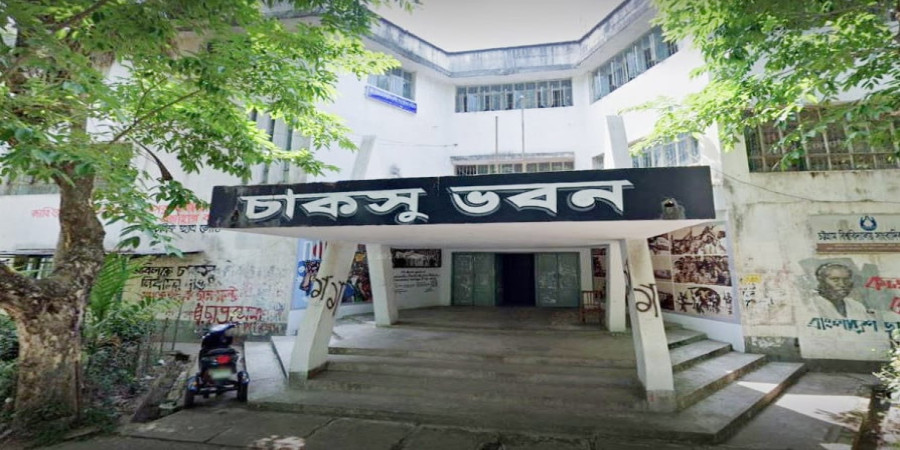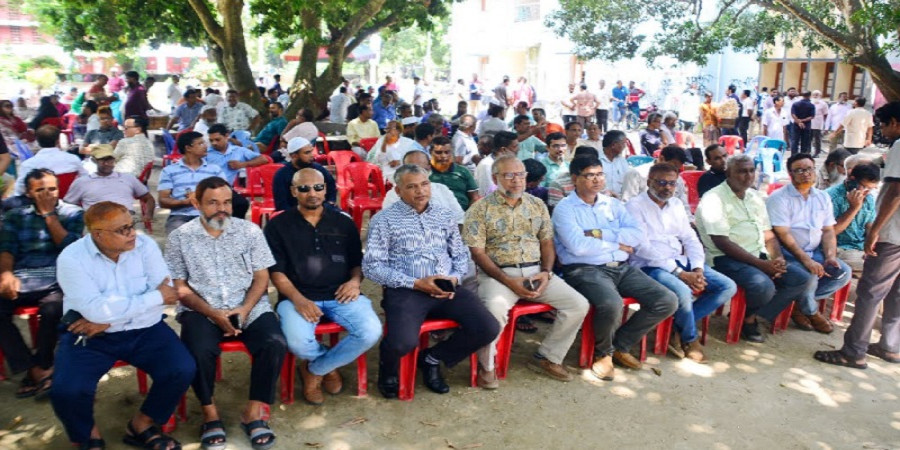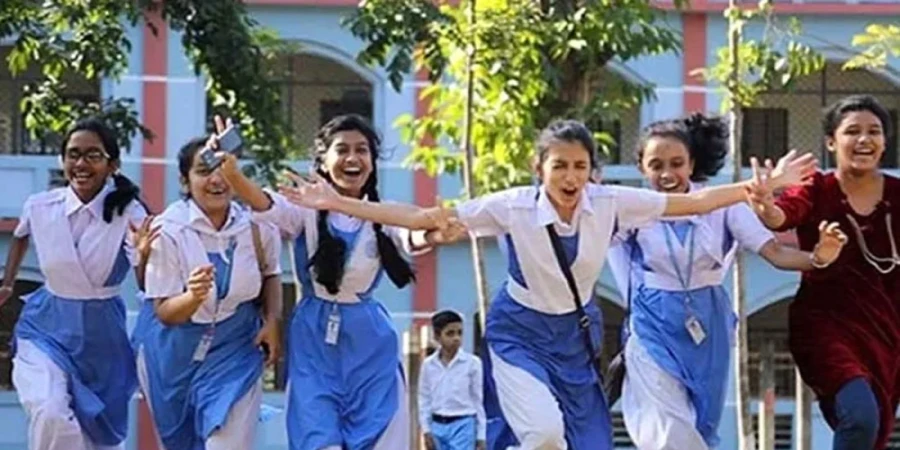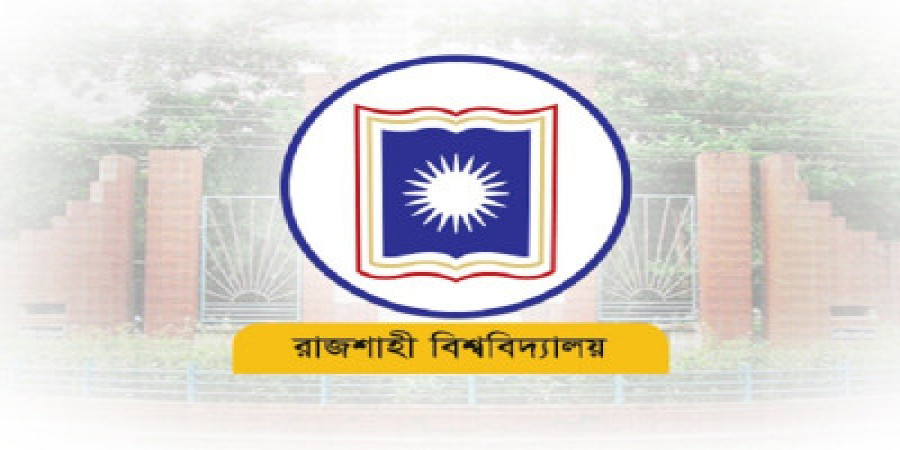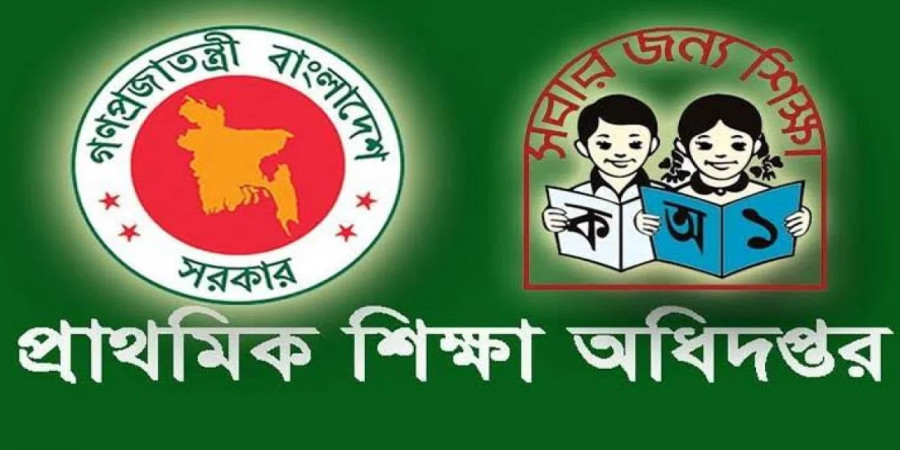
ছবি: Photo: Collected
A nationwide training initiative based on the now-defunct National Primary Curriculum (Revised 2021) has sparked widespread criticism and allegations of financial misconduct. The Directorate of Primary Education (DPE), in collaboration with Upazila Resource Centers (URC), has begun organizing training sessions on the discontinued curriculum across 301 batches throughout the country. The total allocation for this program stands at BDT 3.8 crore, a move many in the education sector believe is unnecessary and strategically designed to benefit a select group of individuals within the system.
Accusations have emerged that instructors from the URCs have managed to secure these training programs by manipulating the DPE’s training division. According to several reports, this kind of initiative is often arranged toward the end of each fiscal year to provide financial benefits to instructors under the guise of professional training. Critics argue that the training offers no practical value, especially as the curriculum it is based on was officially cancelled, and new assessment guidelines are already being implemented in primary schools.
This development has caused considerable frustration and concern among educators, parents, and education stakeholders, many of whom suspect that the training programs are being used as a vehicle to exploit remaining fiscal budgets before the financial year concludes on June 30, 2025. According to sources, the DPE’s training branch has already allocated the fund to the URCs to conduct three-day curriculum training for newly appointed assistant teachers in the Dhaka and Chattogram divisions.
The training initiative comes at a time when the new primary evaluation framework, developed by the National Curriculum and Textbook Board (NCTB), has already been distributed to field-level officials and schools. In fact, the first-term evaluation under the new guidelines began on May 5. These updates followed the suspension of the previously introduced 2021 curriculum amid public unrest on August 5, which coincided with the fall of the previous government.
A letter signed by Director of Policy and Operations at the DPE, Md. Lutfar Rahman, on July 2 of the previous year, officially suspended continuous assessment methods for grades one through three. Despite this, the department has proceeded with training programs based on the very curriculum that was nullified. This inconsistency has triggered outrage among stakeholders who view it as an intentional misuse of state funds.
Notably, this is the first time in the history of primary training programs that such high per capita allowances have been allocated. Each trainee is budgeted BDT 500 for training materials, while an additional BDT 2,500 is allocated per batch for administrative expenses. In comparison, subject-based training programs typically offer only BDT 60 per trainee for materials, and often distribute items worth as little as BDT 35 to 40.
Several instructors, under condition of anonymity, have claimed that the inflated budget for materials and administrative expenses is likely to benefit senior DPE officials. A screenshot of a conversation related to the training, obtained by Desh Rupantor, reflects the sentiment. One participant remarked ironically about the exaggerated figures for materials like posters, pens, and erasers, stating that the actual expense was just a fraction of the allotted amount, while the rest remained unaccounted for. Another replied that the funds are often shared among various individuals, making it difficult for a single instructor to misappropriate them alone.
Md. Shahidul Islam, a nationally recognized head teacher, expressed skepticism about the value of the training. He stated that if the program is based on the old, cancelled curriculum, it will bring no improvement to classroom teaching or professional development.
An official from the Ministry of Primary and Mass Education, speaking anonymously, acknowledged awareness of the training and labeled it as a deliberate attempt to misappropriate funds under the pretense of professional development. He suggested that the training should be suspended, given that its sole purpose appears to be serving private interests.
When contacted, the DPE’s Director of Training, Md. Imamul Islam, stated that he could not comment on the issue immediately as he was out of office. He noted that he would need to consult official documents and promised to provide detailed information the following Sunday.
Former Finance Adviser to the caretaker government, Mirza Azizul Islam, commented that if allocated funds are not utilized within the designated area, they typically revert to the government’s central fund for reallocation. He underscored the importance of ensuring funds are spent appropriately and in alignment with the objectives they were allocated for.
Dr. Iftekharuzzaman, Executive Director of Transparency International Bangladesh (TIB), strongly condemned the training program, saying that conducting training on a scrapped curriculum is unacceptable. According to him, the initiative appears to be organized solely for the personal gain of certain individuals. He stated that such misuse of public money cannot be justified and emphasized that the funds should have been redirected toward meaningful programs aimed at enhancing professional skills.
He also called for a formal investigation into the approval, disbursement, and implementation of the training project, demanding accountability for all involved. According to TIB, spending public money in such a manner constitutes corruption and must not be allowed to go unchecked.
Director General of the DPE, Abu Noor Md. Shamsuzzaman, claimed to be unaware of the issue when asked for a comment. He assured that the matter would be looked into.
As the controversy unfolds, it brings into sharp focus the critical need for transparency, accountability, and efficient resource allocation in the country’s education sector—especially in an era when professional development and quality education are more important than ever.
repoter



